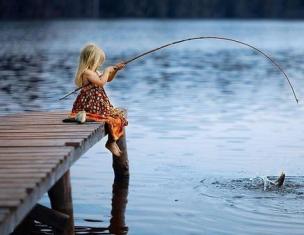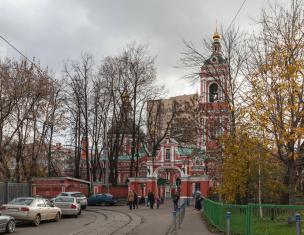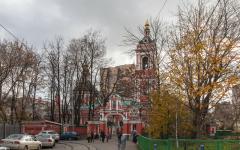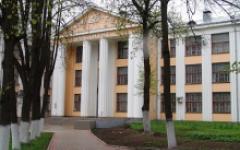Vladimir Dubrovsky - main character famous story by Pushkin. His image has revolutionary features. A kind of Russian Robin Hood of the nineteenth century, who made revenge for his beloved father the goal of his life. However, in the soul of a noble robber there is also room for romantic dreams. The hero of Pushkin's story is quite contradictory. The character of Vladimir Dubrovsky is controversial. Who is he, the son of an impoverished nobleman? Forest robber or lyrical hero?
Andrey Gavrilovich
The character of Vladimir Dubrovsky, like any other person, was formed under the influence of upbringing and environment. But the main factor that influenced his fate is, undoubtedly, the tragedy that occurred in his family. After all, the character of Vladimir Dubrovsky at the time when his father was alive differs significantly from the character of the robber who kept the landowners from nearby villages at bay after the death of Andrei Gavrilovich. But still, what were the protagonist’s childhood and youth like? What was Dubrovsky's father like?
Kirila Petrovich Troekurov was an evil and extremely vicious man. He treated cruelly not only his servants, but also other less wealthy landowners. Troekurov did not respect or fear anyone. Only his old friend - Andrei Gavrilovich Dubrovsky. Their warm relationship surprised everyone: the rude tyrant listened to every word of his poor neighbor and never allowed himself even a caustic comment about him.
Andrei Gavrilovich was distinguished by his proud and independent character. One day Troekurov started talking to him about the possibility of becoming related. Gavrila Petrovich wanted to marry Masha to his friend’s son, despite the fact that he was “naked as a falcon.” However, Troekurov’s neighbor did not even allow the thought of marrying his son, a poor nobleman, to a “spoiled woman.” The character traits of Vladimir Dubrovsky are pride, uncompromisingness, independence. They were passed on to the young nobleman from his father.

Discord between landowners
But one day an event occurred, after which friends became enemies forever. It all started with a rude joke from Troekurov’s hound. Gavrila Petrovich's servant dared to say that the master's dogs live better than some landowners. He certainly meant Andrei Gavrilovich. The old nobleman did not forget the servile joke. But who will be responsible for the words of the slave? Of course, his owner.
The war was at first “cold”, then escalated into open hostility. Troekurov, with the help of some machinations, deprived his former friend of the family estate. Andrei Gavrilovich has since fallen seriously ill, which was immediately reported to his son, who served in the infantry guard.
The character qualities of Vladimir Dubrovsky are described by the author in some detail. The man who was destined to become the leader of peasant bandits had a gentle and carefree disposition in his youth. If there had not been a fatal quarrel between his father and the neighboring landowner, he, perhaps, would have become an ordinary representative of his class, that is, an idle person, wasting his life and the remains of his parental fortune. What was the character of Vladimir Dubrovsky before he received news of his father’s illness and the ruin of the family estate?

Adolescence and youth
The main character of Pushkin's story, despite the shaky well-being of his parent, lived carefree. His father spared nothing for him. Having lost his mother in childhood, he was brought to the capital at the age of eight. I rarely saw my father. The character of the hero Vladimir Dubrovsky undergoes significant changes. Changes in his soul begin from the moment he receives a letter from his old nanny. The message says that the father is sick, forgets himself, and sometimes spends a long time in his thoughts.
Homecoming
During his service, Vladimir was wasteful and lost a lot at cards. But upon returning home, seeing his father, who had fallen into complete childhood, he suddenly changed. He suddenly realized that he was responsible for his old and sick parent, for the peasants, and the servants. Andrei Gavrilovich's affairs were in absolute disarray; he could not give a proper explanation to his son. Vladimir had to sort out the papers himself.
Vladimir Dubrovsky was twenty-three years old when he returned to his native Kistenevka. During the long years of absence, he hardly missed the family estate. When he returned home, sadness took possession of him. Kistenevka now belonged to Troekurov. The Dubrovskys lived their last days in the village that rightfully belonged to them. Andrei Gavrilovich died a few days after his son returned.

Fire
After the funeral of the former owner of Kistenevka, officials, Troekurov’s henchmen, arrived to announce that the village was passing into the possession of the formidable landowner. On this day, Vladimir committed his first noble crime. On the night when he ordered his peasants to burn the house in which he was born and lived the first years of his life, his father died, and now the clerks were sleeping, the nobleman, the son of the landowner Andrei Gavrilovich, passed away. But was born new person- desperate robber Dubrovsky.
Frenchman
And a few months after the fire, a tutor appeared on Troekurov’s estate. The young Frenchman provided documents, and then proceeded to his duties, that is, teaching Troekurov’s son literacy and geography. Deforge, which was the name of the newly arrived tutor, showed unprecedented courage in the very first days of his stay on the estate of a rich and depraved landowner. Having become a victim of Troekurov’s cruel amusements, he ended up in a cage with a bear. However, Deforge, unlike his predecessors, did not chicken out, but shot the beast in cold blood.
This Frenchman was the Russian nobleman Dubrovsky. For a long time he hatched a plan for revenge on Troekurov. And when one fine day he met a Frenchman heading to an enemy’s estate, he bribed him and, having received documents, took the place of a teacher.
Vladimir pretended to be a foreigner for several months. There was nothing about him that betrayed him as a Russian officer, except for the incident with the bear. The fact that he managed to impersonate Deforge and deceive Troekurov speaks of his determination and composure. However, Dubrovsky was unable to carry out his plan. Why didn’t he take revenge on Troekurov?

Masha
The character of Vladimir Dubrovsky, briefly described in the article, includes such qualities as honesty and fearlessness. He was able to go to the end to implement his plan. But living in Troyekurov’s house under the guise of a teacher, Dubrovsky fell in love with Masha. Vladimir committed many, albeit noble, but still crimes. Former peasants from Dubrovsky's gang robbed rich landowners and committed atrocities. However, Vladimir was unable to get even with the father of his beloved girl (even considering that he was the hated Troekurov). Dubrovsky is a hero who has become a symbol of nobility, honor and loyalty to his word.
>Works based on the work of Dubrovsky
Two landowners
The basis of the novel (story) by A. S. Pushkin “Dubrovsky” was a plausible story of the enmity of two landowners - Kirila Petrovich Troekurov and Andrei Gavrilovich Dubrovsky. Such situations were not uncommon in those days, since more influential and wealthy landowners often ruined nobles with a precarious financial situation. The more influential the landowner was, the more capable he was of oppressing his weaker neighbor. In the situation described by Pushkin, Troekurov not only started an argument with a former friend, but because of his vulnerable pride, took away his entire estate.
It should be noted here that he acted dishonestly, resorting to influential people and paid them handsomely. All the characters in the novel differ along class lines. The author involved both rich nobles and forced peasants. In essence, this whole conflict began because of one forced laborer working for Troekurov. Everyone in the area knew that Kirila Petrovich was a rude and cruel person. Many people sincerely sympathized with his servants. So Andrei Gavrilovich, seeing his neighbor’s luxurious kennel, reprimanded him. He said that he probably doesn’t even favor the peasants as much as he does his hunting dogs.
Hearing this conversation, one of the hounds was offended and said that he was living well with Kirila Petrovich, but other nobles would gladly exchange their house for any kennel in the master’s kennel. After this insult, Dubrovsky was offended by his neighbor and demanded that his servant apologize, to which Troekurov could not agree, since his pride was hurt. Only he punished his people, and did not allow others to do this. And so he became ex-friend, a neighbor and colleague, is his fierce enemy. Moreover, Kirila Petrovich decided to take away the family estate in Kistenevka from the Dubrovskys through the court.
This open hostility led to serious consequences that affected all the main characters. Troyekurov managed to take away the estate from his neighbor with the help of another dishonest landowner - Anton Pafnutich Spitsyn, who gave false testimony in court. After this, Dubrovsky’s health deteriorated sharply. He began to gradually fade away. The landowner's son, who arrived urgently from St. Petersburg, could no longer help his father. As for Troekurov, his conscience bothered him, and when he came to make peace with his friend, it only got worse. After the death of Dubrovsky Sr., clerks arrived at the estate with the goal of taking it away.
However, Dubrovsky Jr., with the help of his faithful peasants, started an arson at night so that his parental house would not go to Troekurov. The echo of this enmity reached him. When, by the will of fate, he fell in love
In his novel Dubrovsky, Pushkin describes two types of nobles. The representative of the first of them is Troekurov, the second is Andrei Gavrilovich Dubrovsky. These people are completely different from each other: it’s even strange that they were friends.
Comparison of landowners:
Despite the fact that both heroes are nobles, their position in society is unequal. Troekurov is a rich “Russian gentleman” and, thanks to his money and connections, has great power. Neighbors and officials are afraid of him and try in every possible way to please him. Dubrovsky is poor and has no weight in society. The images of their lives also differ: Troekurov spends his time at feasts and entertainment, while Andrei Gavrilovich leads a modest lifestyle.
The characters' personalities also differ. Dubrovsky is an honest, noble nobleman. Despite his position, he maintains a sense of self-worth. His image of an ideal nobleman stands out especially clearly against the background of the ignorant, rude and arrogant Trubetskoy.
Kirila Petrovich showed all the vices of an uneducated person.
Troekurov allows himself a lot in relation to other people who depend on him. He mocks the serfs and makes cruel jokes at the expense of the guests. Having quarreled with Dubrovsky, he no doubt illegally takes away his estate, taking advantage of his connections. He marries his daughter Masha against her will as an old man, guided by calculation. Andrei Gavrilovich treats everything equally, respects the peasants and does not subservient to those who are richer than him. Dubrovsky condemns Troekurov’s rude attitude towards his servants:
The kennel is wonderful, it’s unlikely that your people will live the same life as your dogs.
Noble society:
As already mentioned, among the nobles Pushkin distinguished two types. The image of Dubrovsky is the author’s idea of an ideal nobleman, enlightened and educated. But in the reality of that time, power belonged to representatives of the second type, such despots as Troekurov. However, the writer believed that the future of the country lay precisely with the noble nobles.
Dubrovsky and Troekurov are two personalities, two human destinies, who have much in common. For example, the fact that they belong to a noble family and the pre-revolutionary era of the nineteenth century.
Dubrovsky and Troekurov, when they were young, served with the tsar, after which they were awarded with honor, and as a result received an officer rank.
Andrei Gavrilovich and Kirill Petrovich married for love, but, unfortunately, quickly became widowers.
There were children from the marriages. Dubrovsky had a son whose name was Volodya. Troekurov had a daughter, Maria.
After serving the tsar, Dubrovsky and Troekurov resigned. They settled on their estates.
In Pushkin’s work, the main characters have the same powers, the right to dispose of rights and privileges, but due to their lifestyle and character, they use them in completely opposite ways.
The strong temperament of the two landowners helped not only create a position in society, but also become friends with each other.
The domineering, arrogant Troekurov loves to always be the center of attention. He is boastful in front of guests, showing off his rich mansions. He is especially demanding and strict with his subordinates. He keeps everything under control and does not allow familiar, impudent communication to outsiders, which he forgives Andrei Gavrilovich Dubrovsky.
Dubrovsky himself is a closed, hidden person who does not like to be in society, in plain sight. Not so rich, but won the sympathy of his arrogant and arrogant friend Troekurov.
Kirill Petrovich saw in Dubrovsky: independence, determination, courage, straightforwardness of statements. These main features attracted Troekurov to Andrei Gavrilovich.
Friendship between neighbors cracks during another everyday conversation. In it, Andrei Dubrovsky touches the pride of his comrade, and he, as a hot-tempered person, cannot forgive him for this.
The provoked conflict on the part of Dubrovsky has an unpleasant turn of the situation.
Troekurov threatens to take revenge on his comrade for such insolence, promising to deprive him of everything he has.
Kirill Petrovich hoped to disgrace Dubrovsky so that he would come to him with an apology, and in the future, he would obey him.
An ordinary conflict worsens the life of Andrei Gavrilovich and destroys the friendship between the landowners.
The novel contains revenge and cruelty that influence the destinies of two people. Morality and morality, in the novel, fade into the background.
Comparison of Andrei Dubrovsky and Kirila Troekurov
We cannot imagine Russian literature without the poet and prose writer Alexander Sergeevich Pushkin, the founder of the realistic movement. Every person, having familiarized himself with the writer’s work, does not remain indifferent to his creations. One of the classic masterpieces is the novel "Dubrovsky". When writing, Pushkin was guided by the truthful story of Pavel Voinovich Nashchokin, who was a close friend of the writer.
In this novel, Pushkin touched on topics that worried many in those years: the lack of rights of serfs, the permissiveness of rich landowners, the injustice of the royal court and robbery as a protest of the common people.
The essence of the plot of the novel is about how a conflict arises between two landowners Kirill Troekurov and Andrei Dubrovsky after many years of friendship. The wealthy landowner Troekurov allowed his huntsman to make a free statement, in which he offended the honor and dignity of his friend Dubrovsky. The matter comes to trial. Due to the false testimony of the legislator Spitsyn, the estate of Andrei Gavrilovich Kistenevka goes to Kirill Petrovich. Dubrovsky was already not living on a grand scale, leading a modest lifestyle compared to Troekurov. And then there’s this misfortune - his best friend takes all his property. Severe nervous shock affects Andrei Gavrilovich’s health. He is struck by an illness that leads to death. Vladimir, son of Andrei Dubrovsky, leaves military service due to his father's illness and returns home. Having learned all the circumstances that have developed with his father’s estate, he cannot stand it and sets his house on fire. In this case, the clerks die. He becomes a robber with one desire to take revenge on his father's former friend.
Kirill Troekurov is one of the main characters of the novel. Very rich. A strong, strong man. Despite his lack of education, he has great influence in secular circles, which allows him to do whatever he wants. To achieve his goals, he shamelessly allows himself to lie. He respects only wealthy people, and expresses clear disdain for the poor.
Andrei Dubrovsky is not a rich man, but with self-esteem. By origin he belongs to a noble family. Proud, independent. For him, having a thick wallet does not matter when communicating with people. Honest, direct. Not afraid to express his opinion. Believes that justice will always prevail. But, unfortunately, Russia at that time lived according to Troekurov’s laws. And all his positive qualities do not keep him alive.
6th grade. Characteristics and comparison
A friendship that ended never really began.
Pushkin A.S. - a person to be proud of. We should be grateful to him that we can enjoy the great works of this unique writer. He is the heritage of our Motherland. “Dubrovsky” is one of many novels by A.S. Pushkin. The plot of the novel is based on real events, which makes it more exciting and touching.
At the center of the work are two people, Kirila Troekurov and Andrei Dubrovsky. With the help of these heroes, A.S. Pushkin showed the problems of noble society and the human qualities characteristic of the noble class of that time.
Kirila Petrovich Troekurov and Andrei Gavrilovich Dubrovsky are characters of the same age, belonging to the noble class, and therefore received the same upbringing. They had little similarity in character and inclinations. Fate, at the beginning of life’s journey, also turned out the same way. Both have a love marriage behind them, early widowhood and small children in their arms. But despite this, these characters are completely different in temperament and goals in life.
Troekurov is a character with a “rather limited mind.” A.S. Pushkin collected in one person all the terrible vices of humanity. Kirila Petrovich considers himself the center of the universe, he is used to everyone being afraid of him. He doesn't know what failure is. He has the power that can open all doors for him. His fiery personality spreads to everyone. He doesn't know who's in front of him. His name alone terrifies people. They experience insurmountable fear; people don’t even think about contradicting it. Everyone, on the contrary, tries to please him even if it goes against the law. He is the law itself. One word from him can destroy a person. Troyekurov is a tyrant. His cruel attitude extends to his servants, despite their devotion to him. His hobbies are primitive: gluttony and drunkenness. Kirila Petrovich does not spare her only daughter, she does not marry her out of love.
Troekurov respected only one person. It was Andrei Gavrilovich Dubrovsky. They were once united by service in the guard. Then the friends' paths diverged and they met years later. Dubrovsky was ruined and forced to leave service. Andrei Gavrilovich settled not far from Kiril Petrovich, who “offered him his patronage.” But Dubrovsky chose to remain poor and independent. Pride prevailed over the fear of venturing out into the world.
Dubrovsky was the only one who could express his opinion under Troekurov. This is what destroyed him. Andrei Gavrilovich could not stand the insult from the kennel worker towards him. Pride and temper took over. Andrei silently left the estate. Troekurov and did not return after a serf was sent for him. After another mistake was made, Dubrovsky demanded that Troekurov send him the employee who had insulted him. For which his now former friend decided to take away Dubrovsky’s estate. Troekurov wanted unconditional power over Dubrovsky.
The tragedy of this novel lies in the fact that Troekurov realized his mistake too late. He decides to make peace with his friend and return his estate, but it was already too late. Dubrovsky dies.
A.S. Pushkin showed with his novel how easy it is to destroy another person. To do this you need to have money and be a dishonest person. Unfortunately, nothing has changed and today you can meet a person with the same vices as the character in this novel.
Several interesting essays
- Essay My favorite writer Lermontov
I like many works of Russian and foreign literature. Despite the impressive list of great writers of all times and peoples, for myself personally, I have long chosen my favorite writer - M.Yu. Lermontov
- Essay based on Avilov’s painting Duel of Peresvet with Chelubey (Duel on the Kulikovo Field) description
One of the greatest creations of the outstanding Russian and Soviet painter Mikhail Ivanovich Avilov is the painting The Duel on the Kulikovo Field. This painting brought real fame and success to the artist.
- The image and characteristics of the Gentleman from San Francisco in Bunin's story
In his work I.A. Bunin tells the story of a certain gentleman from San Francisco traveling to Europe with his wife and daughter. A family sails on a steamship with a symbolic name
- Essay Letter to a Veteran of the Great Patriotic War Letter of Gratitude
Hello, dear veteran, participant in the battles of the Great Patriotic War! I am writing to you to express my deep gratitude for what you have done for us - future generations.
- Essay Anna Pogudko in the novel Quiet Don: image and characteristics
In Sholokhov’s famous novel “ Quiet Don“Cossack women are those people who do not pay attention to political passions. The novel contains the image of a revolutionary woman, Anna Pogudko.
| Troekurov | Dubrovsky | |
| Character quality | Negative hero | The main positive hero |
| Character | Spoiled, selfish, promiscuous. | Noble, generous, decisive. Has a hot character. A person who knows how to love not for money, but for the beauty of the soul. |
| Occupation | A rich nobleman, he spends his time in gluttony, drunkenness, and leads a dissolute life. Humiliation of the weak brings him great pleasure. | He has a good education, served as a cornet in the guard. After Troekurov illegally took away the estate from Dubrovsky Sr., he becomes a robber. |
| Position in society | A wealthy nobleman with great connections and money. | Noble robber, former nobleman. |
| Attitude to the quarrel with Dubrovsky's father | He couldn’t forgive his friend and begins to take revenge with full force. Having money, he managed to seize the estate from the Dubrovskys with the help of bribes. | He considers harming his offender to be an extreme baseness. Having fallen in love with Troekurov’s daughter Maria, he renounces “bloody” revenge. |
| The purpose of visiting Andrei Dubrovsky before his death | The desire to apologize for what you have done and make amends. | Say goodbye to your father and send him on his last journey. |
| Relation to Masha | Troekurov adores his daughter, but makes her unhappy by giving her in marriage to a rich old man, Prince Vereisky. | Despite the fact that Masha is the daughter of Troekurov, the Dubrovskys’ worst enemy, Andrei falls in love with her and decides to marry her. |
| Attitude towards a possible alliance between Vladimir and Masha | Extremely negative. | Dubrovsky is very worried. He loves Maria, but she will become the wife of a robber. And such a husband is unworthy of her. |
| Attitude towards serfs | He considers them just slaves, a material object that can be easily changed. | Understand that serfs are people too. In the end he releases his peasants to freedom. |
| Life streak | Troekurov gets away with everything. This is not surprising, because with great connections and wealth you can move mountains. | Evil conquers good. Noble Dubrovsky loses the “battle” due to a stronger enemy. Dubrovsky cannot find a place in this life where he would be happy. |
| Relation to Misha the bear | After killing Misha, she does not regret his death at all. He even admires young Dubrovsky. | Doesn't express much sympathy for the beast. As a result, he sneaks into T.’s house and kills Misha. |
| Ending | Masha is married to a rich nobleman, Troekurov’s life is going well. | His departure not only means his loss, but also symbolizes the defeat of all of Russia. All good qualities people disappear from Russia, only the worst remains and continues to live happily ever after. |
- The controversial and even somewhat scandalous story "Dubrovsky" was written by A. S. Pushkin in 1833. By that time, the author had already grown up, lived in a secular society, and became disillusioned with it and the existing government order. Many of his works dating back to that time were under censorship ban. And so Pushkin writes about a certain “Dubrovsky,” a young, but already experienced, disappointed, but not broken by everyday “storms,” a man of 23 years old. There is no point in retelling the plot - I read it and [...]
- A.S. Pushkin is the greatest, brilliant Russian poet and playwright. Many of his works trace the problem of the existence of serfdom. The issue of the relationship between landowners and peasants has always been controversial and caused a lot of controversy in the works of many authors, including Pushkin. Thus, in the novel “Dubrovsky”, representatives of the Russian nobility are described by Pushkin vividly and clearly. A particularly notable example is Kirila Petrovich Troekurov. Kirila Petrovich Troekurov can be safely attributed to the image […]
- We learn about Anton Pafnutich Spitsyn closer to the middle of the story. He comes to Troyekurov for a temple festival and, it must be said, does not make the most favorable impression. Before us is a “fat man of about fifty” with a round and pockmarked face with a triple chin. Obsequiously, with a sycophantic smile, he “barged into the dining room,” apologizing and bowing. Here at the table we learn that he is not distinguished by courage. Spitsyn is afraid of the robbers who have already burned his barn and are approaching the estate. Fear […]
- The romantic “noble” robber is an image that is well known in world literary practice. As a rule, they were rejected representatives of the noble class, treacherously deceived by friends or offended by a corrupt law. Pushkin's hero Vladimir Dubrovsky is one of these “noble” knights of the night. But he did not immediately become a robber. The reader knows that this young man was educated in the Cadet Corps, then served in the guards regiment of the city on the Neva. Like a typical […]
- Pushkin based his novel “Dubrovsky” on a case that was very characteristic of the relationships between landowners that existed at that time. The more influential the landowner was, the more he was able to oppress his weaker, poorer neighbor, not to mention taking away his estate. Alexander Sergeevich was very concerned about the verisimilitude of his novel. All the characters in the novel "Dubrovsky" are divided as if into social classes, each with its own characteristics. For example, the landowner Troekurov initially […]
- Tatyana Larina Olga Larina Character Tatyana is characterized by the following character traits: modesty, thoughtfulness, trepidation, vulnerability, silence, melancholy. Olga Larina has a cheerful and lively character. She is active, inquisitive, good-natured. Lifestyle Tatyana leads a reclusive lifestyle. The best time for her is alone with herself. She loves to watch beautiful sunrises, read French novels, and think. She is closed, lives in her own inner [...]
- Eugene Onegin Vladimir Lensky Age of the hero More mature, at the beginning of the novel in verse and during the acquaintance and duel with Lensky he is 26 years old. Lensky is young, he is not yet 18 years old. Upbringing and education He received a home education, which was typical for most nobles in Russia. The teachers “didn’t bother with strict morals,” “they scolded him a little for pranks,” or, more simply, spoiled the little boy. He studied at the University of Göttingen in Germany, the birthplace of romanticism. In his intellectual baggage [...]
- A.S. Pushkin wrote the poem "Poltava" in 1828. In it, he reflected the state of Russia during the reign of Peter I. This was a period of strengthening of the Russian State. The poem shows historical figures who were around at that time. These are Peter I, Charles XII, Kochubey, Mazepa. They are characterized by their independence and turning point The role of each hero is visible in the Battle of Poltava. The poem is permeated with two connected genre-style lines, these are the love-romantic relationship between Mazepa and Maria, as well as […]
- Pushkin's original intention for the novel Eugene Onegin was to create a comedy similar to Griboyedov's Woe from Wit. In the poet's letters one can find sketches for a comedy in which the main character was portrayed as a satirical character. During the work on the novel, which lasted more than seven years, the author’s plans changed significantly, as did his worldview as a whole. By its genre nature, the novel is very complex and original. This is a "novel in verse." Works of this genre are also found in other [...]
- Masha Mironova is the daughter of the commandant of the Belogorsk fortress. This is an ordinary Russian girl, “chubby, ruddy, with light brown hair.” By nature she was cowardly: she was afraid even of a gun shot. Masha lived rather secluded and lonely; there were no suitors in their village. Her mother, Vasilisa Egorovna, spoke about her: “Masha, a girl of marriageable age, what kind of dowry does she have? - a fine comb, a broom, and an altyn of money, with which to go to the bathhouse. It’s good, if you can find it.” a kind person, otherwise you’ll sit in eternal girls […]
- Pushkin's story "The Queen of Spades" is based on a real incident that happened to Prince Golitsyn. He lost money at cards and came to ask his grandmother Natalya Petrovna Golitsyna for money. She didn’t give any money, but she told her a magical secret that helped Golitsyn win back. From this boastful story told by a friend, Pushkin created a story containing deep ethical meaning. The main character of the story is Hermann. In the story he is compared with the whole society. He is calculating, ambitious and passionate. This is definitely […]
- This traditional theme worried such poets as Horace, Byron, Zhukovsky, Derzhavin and others. Best Achievements world and Russian literature was used in his poetry by A. S. Pushkin. This was most clearly manifested in the theme of the purpose of the poet and poetry. This issue is addressed in the first published poem, “To a Poet Friend” (1814). The poet talks about the sorrows that befall poets, who...are praised by everyone, fed only by magazines; The wheel of Fortune rolls past them... Their life is a series of […]
- Themes and problems (Mozart and Salieri). “Little Tragedies” is a cycle of plays by P-n, including four tragedies: “The Miserly Knight”, “Mozart and Salieri”, “The Stone Guest”, “A Feast in the Time of Plague”. All these works were written during the Boldino autumn (1830. This text is intended for private use only - 2005). “Little tragedies” is not Pushkin’s name; it arose during publication and was based on P-n’s phrase, where the phrase “little tragedies” was used in the literal sense. Copyright titles […]
- Introduction Love poetry occupies one of the main places in the work of poets, but the degree of its study is small. There are no monographic works on this topic; it is partially covered in the works of V. Sakharov, Yu.N. Tynyanova, D.E. Maksimov, they talk about it as a necessary component of creativity. Some authors (D.D. Blagoy and others) compare the love theme in the works of several poets at once, characterizing some common features. A. Lukyanov considers the love theme in the lyrics of A.S. Pushkin through the prism [...]
- For Pushkin, the feeling of friendship is a huge value, which is equal only to love, creativity and inner freedom. The theme of friendship runs through the poet’s entire work, from the lyceum period to the end of his life. As a lyceum student, Pushkin writes about friendship in the light of the “light poetry” of the French poet Parni. The poet's friendly lyceum lyrics are largely imitative and opposed to classicism. The poem “To the Students” poetizes a cheerful feast, glorifies wine and the joy of a friendly, carefree […]
- The theme of the poet and poetry worries all poets, since a person needs to understand who he is, what place he occupies in society, what his purpose is. Therefore, in the works of A.S. Pushkin and M.Yu. Lermontov this topic is one of the leading ones. In order to consider the images of the poet in the two great Russian classics, you must first find out how they define the purpose of their work. Pushkin writes in his poem “The Song of the Prophetic Oleg”: The Magi are not afraid of mighty rulers, And they do not need a princely gift; Truthful and [...]
- A.S. Pushkin and M.Yu. Lermontov are outstanding poets of the first half of the 19th century. The main type of creativity for both poets is lyricism. In their poems, each of them described many topics, for example, the theme of love of freedom, the theme of the Motherland, nature, love and friendship, the poet and poetry. All of Pushkin’s poems are filled with optimism, faith in the existence of beauty on earth, bright colors in the depiction of nature, and in Mikhail Yuryevich the theme of loneliness can be seen everywhere. Lermontov's hero is lonely, he is trying to find something in a foreign land. What […]
- Writing about Pushkin is a fascinating activity. This name in Russian literature has acquired many cultural layers (take, for example, the literary anecdotes of Daniil Kharms or the film by the animator Andrei Yuryevich Khrzhanovsky “Trilogy” based on Pushkin’s drawings, or the opera “The Queen of Spades” by Pyotr Ilyich Tchaikovsky). However, our task is more modest, but no less interesting: to characterize the theme of the poet and poetry in his work. The poet's place in modern life much less significantly than in the 19th century. Poetry is [...]
- Pushkin's landscape lyrics are rich and varied. It occupies an important place in the poet’s work. Pushkin saw nature with his soul, enjoyed its eternal beauty and wisdom, and drew inspiration and strength from it. He was one of the first Russian poets who revealed to readers the beauty of nature and taught them to admire it. In merging with natural wisdom, Pushkin saw the harmony of the world. It is no coincidence that the poet’s landscape lyrics are imbued with philosophical sentiments and reflections; one can trace its evolution throughout creative activity […]
- Having gone through many works by A.S. Pushkin, I accidentally came across the poem “God forbid I go crazy...”, and I was immediately attracted by the bright and emotional beginning, which attracted the reader’s attention. In this poem, which seems simple and clear and understandable, like many other creations of the great classic, one can easily see the experiences of the creator, the true, free-minded poet - experiences and dreams of freedom. And at the time this poem was written, freedom of thought and speech was severely punished […]









